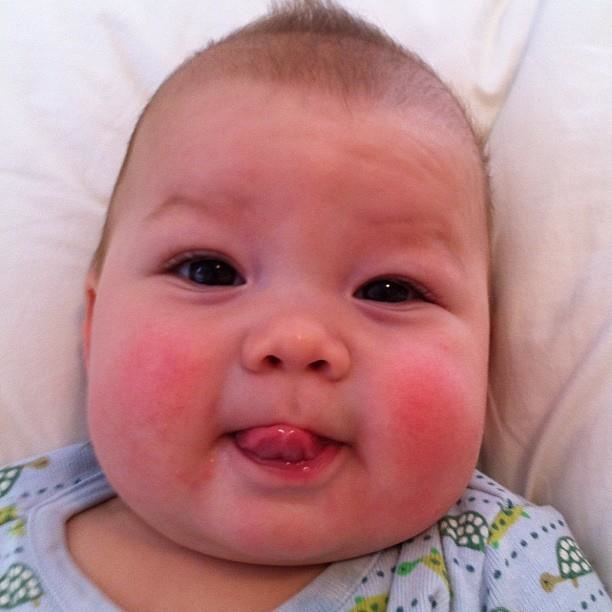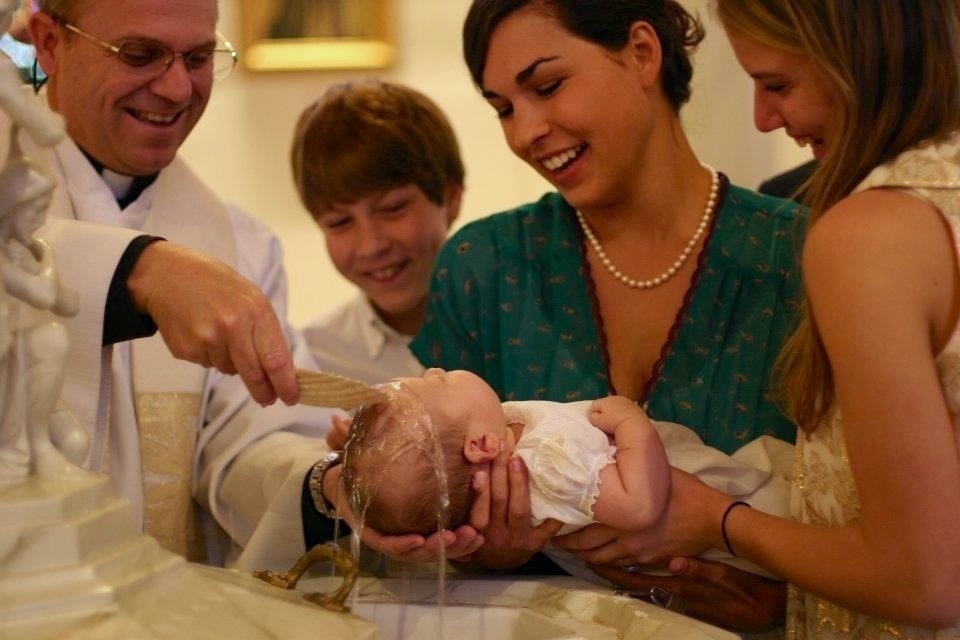Passion of Saint John the Baptist I wrote this hard-hitting piece a year after Hurricane Katrina. With violence running rampant in our culture, and in light of the horrific Planned Parenthood scandal, I feel compelled to share it with you now. I believe it is more pertinent than ever and I've added a few final thoughts for reflection. May God bless and restore our nation, and may St. John the Baptist, whose beheading we remember today as he confronted the moral evil before him, pray for us.
Growing up in New Orleans, we never locked our doors. We seldom even closed our windows, as we lived in the swampy heat of New Orleans without the convenience of air-conditioning. We were free to roam the streets day or night without fear of crime or bodily harm, and we spent hot summer nights playing “kick the can” with a whole city block as our playground. I now live in a subdivision behind a guard gate in the suburbs to simulate this same sense of safety.
St. Thomas Aquinas taught that our actions form us into the kind of people we become. Additionally, our actions speak volumes about the kind of people that we are. We convey this belief with the old adage: “actions speak louder than words.” Needless to say, actions spoke at deafening volumes in the days following Hurricane Katrina.
I sat in a hotel room in Memphis, Tennessee with my now late husband, Bernie, and our five children watching in shock as lawlessness broke out on the streets of New Orleans. People looted businesses, burned shopping malls and began to destroy what was left of the city. My family and I sat in stunned silence as we heard stories of rape, murder and theft, and as we watched our fellow New Orleanians help themselves not only to the supplies they needed to sustain life, but to large screen TVs, stereos, fancy shoes and fine clothing.
We listened to endless hours of analysis on television, as reporters tried to assimilate what had happened. The bottom line, they concluded, was that the crisis had brought out the worst in human nature, and that the government was to blame for not showing up sooner. What we never heard, however, was the conclusion that these acts accurately reflected the belief systems of our current culture. I, for one, believe that there was a deeper truth conveyed by these actions, and I suggested as much to several people in the weeks following Katrina, when I proposed that the mayhem in our beloved city spoke volumes about the kind of people we have become.
A central part of the Catholic faith is our belief in “incarnational reality,” which holds that the physical realm is a visible, tangible sign of a deeper, invisible reality. This belief is rooted and grounded in our faith in the Incarnation of Christ—that pivotal moment in history when the “Word of God” became flesh. There are incarnational symbols aplenty in the Catholic faith, including the Church and her seven sacraments. These are visible, sensible signs instituted by Christ to communicate grace to His people. But “enfleshed” signs and symbols are not unique to the Catholic faith, as there are incarnational signs all around us that point us to deeper truths.
I consider the aftermath of Hurricane Katrina to be such a sign, and I believe that we would do well to read what it is saying to us. “The rule of law,” says the sign “has become the rule of lawlessness. You have lost the proper understanding of freedom, and it shows in the way you behave.”
Half a century ago, we had a hurricane, too. Her name was Betsey and she left the city of New Orleans flooded and without electricity, food or water for over a week. We shared our supplies with our neighbors and we helped each other clean up. We never dreamed that our fellow citizens would try to take our things, or that people would wreak havoc in the city by looting businesses or destroying property. The National Guard was not needed, because the Internal Guard still governed us. The Internal Guard was our conscience, and it was formed in a specific understanding of freedom. To be free meant that we enjoyed personal and political liberty, and that we had the responsibility of exercising these freedoms within the boundaries of self-restraint. A person who was truly free could exercise command of himself, and this self-possession was visibly and tangibly manifested in a citizen who followed both the laws of God and man with ease.
Our current understanding of freedom is that we can do whatever we wish. We have thrown off the shackles of self-control and self-discipline for the “freedom” of self-indulgence. We have confused liberty with absolute license, and the streets of New Orleans in September 2005 bore visible witness to this truth. This version of freedom says: “I will do what I want, so long as the law does not stop me!” The concept of freedom that laid the foundation for American democracy spoke another language entirely. It echoed the words of “self-control” and “liberty in law.”
It struck me this week as I watched the eighth Planned Parenthood video and also remembered the violent outbreak in New Orleans following Hurricane Katrina (and in too many other cities to name since then) that the rampant violence in our culture is an incarnational sign of freedom gone mad. We have rejected the concept of objective truth, and consequently we believe in nothing. And we have distorted the concept of freedom until it is almost unrecognizable. A culture that believes in nothing, with no limits on its behavior, becomes a culture that will resort to violence and death when life becomes challenging. We are seeing that reality incarnated in spades today.
What is the answer? Pure and simply, it is a radical return to Jesus Christ and to the Christian principles upon which this nation was founded. Christ alone has the words of life. He alone can save us.
"John the Baptist appeared in the desert proclaiming a baptism of repentance for the forgiveness of sins." Mark 1:4






